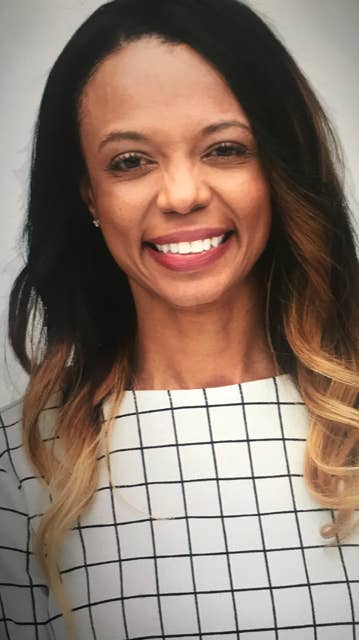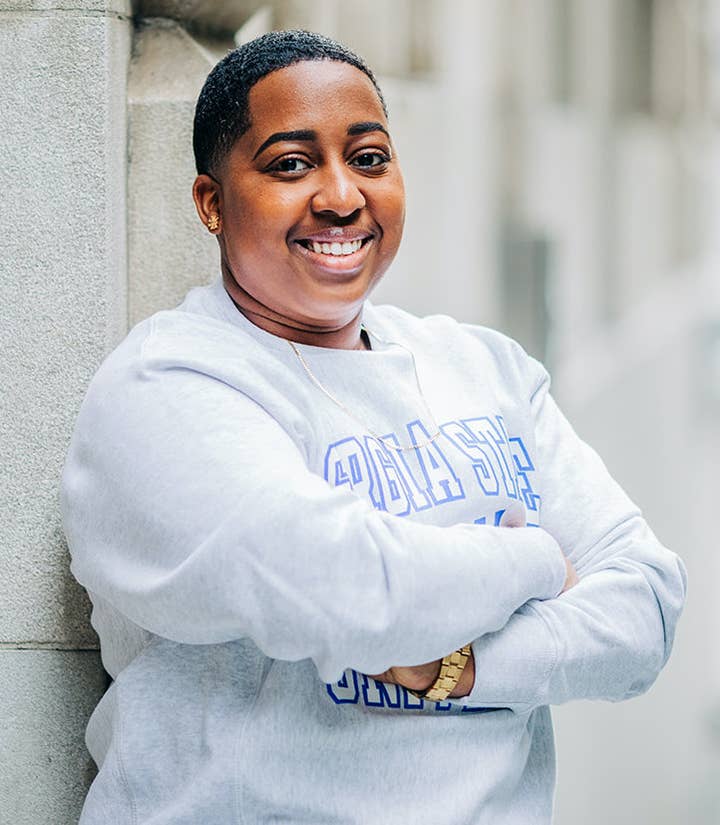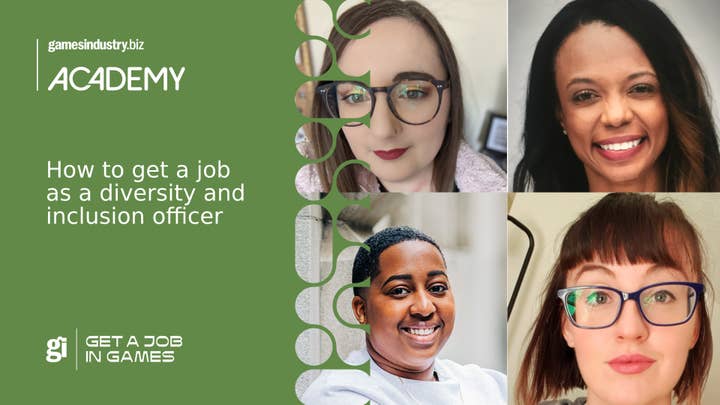How to get a job as a diversity and inclusion officer
The GamesIndustry.biz Academy explores the role and impact of a D&I officer
Our guides can help you to find the right path to the games industry job of your dreams. You can read our other in-depth guides on how to get a job in the games industry on this page, covering various areas of expertise.
Diversity and inclusion are important subjects that often get talked about when their lack in the gaming industry is brought into focus. While missing diversity is still undoubtedly a problem in the industry on the whole, diversity and inclusion officers seek to combat just that at a growing number of companies.
But diversity and inclusion (D&I, also known as DEI -- diversity, equity and inclusion) is about more than just building a more diverse workforce -- as the name suggests, it is also about helping employees feel more included, and raising awareness about race, gender and disability issues.
"Companies have become more intentional about levelling the playing field and offering a safe space for their employees"Rejess Marshall, Iron Galaxy
Knowledge about the responsibilities of diversity and inclusion officers, or even the existence of the role, isn't widespread. Because of this, hopefuls may in some cases have to campaign for the establishment of a D&I role themselves, but the benefits are clear -- a more diverse workforce leads to larger economic success for companies and better employee retention, while from a social perspective, D&I fosters better understanding between employees and a better workplace climate.
"I think we've seen an uptick in these roles across all industries, because we've all become more self-aware," Rejess Marshall, head of diversity and inclusion at Iron Galaxy, says. "Companies have become more intentional about levelling the playing field and offering a safe space for their employees."
The tasks of a diversity and inclusion officer can vary from company to company, so you'll fare best with a skillset that includes several different disciplines. While that can seem daunting, interviewees for this article all agreed that the willingness to learn and to communicate are what's most important.
With that in mind, let's explore the role and impact of a D&I officer, and how to best start a career in this field.
- What is diversity and inclusion and how does it influence the workplace?
- What are the daily responsibilities of a diversity and inclusion officer?
- What education and skills do I need as a diversity and inclusion officer?
- What are some ways to become a diversity and inclusion officer?
- What difficulties can diversity and inclusion officers face?
- Advice for new and aspiring diversity and inclusion officers
What is diversity and inclusion and how does it influence the workplace?
- Diversity and inclusion is about creating value by feeling valued
Matters linked to diversity and inclusion are everywhere, because they influence our social interaction, and that matters in the workplace as much as everywhere else.
"[It's about] recognising that diverse teams and truly inclusive behaviour impact every aspect of your business -- from the innovation of your games to your team's dynamic, all the way to attracting different talent and retention of staff," says Veronica Heath, head of diversity and inclusion at Rare. "When done effectively, it can help make a safer, more accessible workplace for your employees to feel happier and create their best work."
"[It's about] recognising that diverse teams and truly inclusive behaviour impact every aspect of your business"Veronica Heath, Rare
Measurable advantages of diversity and inclusion, such as heightened productivity and more interesting games, can be an argument for companies to establish diversity and inclusion roles, but it is important to note that D&I isn't solely concerned with economic output.
"D&I starts with making people feel welcome -- do you feel good here or do you feel alienated? Are people nice? Just basic human tenets of being nice and kind to people that sometimes employers just don't think about," Marshall adds. "We all deserve to work at a place that is safe and equitable, and a part of that is recognising our differences and our diversity."
"D&I is important because it changes the focus of the company to the human potential rather than the bottom line," says Toni Ligons, PhD., director of diversity and inclusion at 2K. "Smart companies use D&I as a competitive advantage that allows them to build better solutions, target more customers and create sustainable organizations."
In short, an interest in selling products doesn't have to sacrifice the human element, but should embrace their employees' diversity to lead to a better workplace culture overall.
What are the daily responsibilities of a diversity and inclusion officer?
- Your daily tasks depend on the needs of your company
At its core, diversity and inclusion work is about talking and more importantly, listening to people. Only once you know how people at a company feel and what their needs are can you create strategies that help them reach their potential.
"A big part of my job is about listening to others. By understanding the uniqueness of the person, our team is able to design systems that meet them where they are and accelerate their performance," Ligons says.

This can mean research into the climate at a studio, as well as identifying and solving issues of note, for example via policy changes, but also facilitating dialogue between employees, event work and company-wide training initiatives.
"Specifically for 2K, our diversity strategy is broken down into three focus areas -- empowering employees to support one another in building community and sense of belonging; accelerating the hiring, development and retention of African Americans, LatinX and women globally; and enabling an inclusive work environment for all through training and knowledge sharing activities. My days consist of creating, coordinating and building activities that drive each of these focus areas forward."
- Conversation, conversation, conversation
Recruitment and company communications can both be a large aspect of D&I work, as they require inclusive language and address current employees' feedback about what it is like to work at a company. As Ligons says, D&I officers work together with HR particularly in matters of recruitment and employee retention. Whatever your tasks are, they will be done collaboratively -- with company leadership, HR, or even your D&I network.
While it isn't an actual responsibility, many D&I leads also take time to publicly speak about diversity and inclusion to raise awareness on the subject. Musio regularly gives talks at public conferences such as this year's Develop in order to further champion the subject outside her own company.
What education and skills do I need as a diversity and inclusion officer?
- Higher education is necessary and a HR-related degree provides a good basis
There is currently no fixed path for a role in diversity and inclusion, but since it is fundamentally a field related to human resources, education in a HR-related subject will provide an understanding of the issues employees face at the workplace, the legal framework of organisations and how to build initiatives that a company can benefit from.

Useful degrees include Human Resources, Workplace Law, and Organisation Psychology. Additional education in the fields diversity and inclusion concerns itself with, such as Gender Studies, History with a focus on minority groups and Queer Studies help to understand the issues people from different backgrounds face.
Courses on diversity and inclusion are becoming more widespread, which makes it possible to gain the necessary understanding of the topic even if your degree is unrelated. Your genuine interest in the topic should become apparent even if your current educational trajectory or job is unrelated.
- Don't neglect your soft skills
Cinzia Musio, diversity and inclusion advisor at Splash Damage, has an Art degree, but gained an understanding of employment law and legal requirements at a former position. For her, a lifelong willingness to learn is essential for the position, as Diversity and Inclusion is still a developing field that rapidly evolves.
"A strong sense of empathy is absolutely key, as you will often be working with people who have been marginalised, in one way or another," she says. "You need to be able to understand that the work you are doing is for them, and that it has a real-life impact on the day-to-day of the people you work with."
"It helps that I am a people person. I really care about what makes people tick. You have to have personal passion around creating change for people"Toni Ligons, 2K
She also believes a data-driven mindset to be highly valuable. Heath puts it similarly: "This role really starts with understanding the importance of diversity and inclusion and having a heart for making things fairer, more inclusive and striving for a better world. It's a role about culture, so understanding how teams work,what inclusive behaviours are and seeing that everyone brings something unique to our culture, so it's the people aspects of your education."
Rejess Marshall cites experience in volunteering and leading an employee resource group as important experience in speaking up for others, while Toni Ligons, although she went on to do a PhD in Organisational Psychology, thinks of good communication skills as the most important tool to have.
"My job is all about building relationships and educating people about the benefits of inclusion," Ligons says. "It helps that I am a people person. I really care about what makes people tick, why they think the things they do and what can be done to improve their way of thinking or their lives in general. You have to have personal passion around creating change for people."
What are some ways to become a diversity and inclusion officer?
- Diversity and inclusion officer might not be a job you find via job listings
Paths to becoming a diversity and inclusion officer can be varied and may or may not start outside of the gaming industry, depending on whether the role becomes more widespread over the next few years.
"You don't need an official job title to get involved in areas of diversity and inclusion"Veronica Heath, Rare
"You don't need an official job title to get involved in areas of diversity and inclusion," Heath says. "There is lots to learn out there and lots of articles on the topic. You could take up opportunities to mentor people or start/support a community of your own."
Almost all participants for this article discovered it as an option for themselves -- this is not a junior role, and starting off in a diversity and inclusion position straight away is unlikely.
- Use your knowledge of your company
Musio began working for Splash Damage as a live operations manager, and found the atmosphere at the studio so welcoming that they wanted other marginalised people to feel listened to.
"Splash Damage, and the industry in general, was always really open to feedback and hearing new ways to improve, which made me look into how we get more marginalised people into the games industry, and try to understand why the games industry isn't good at that," she says. "This led to learning more about unconscious bias. I found at that point that a lot of the existing training and workshops were all very formal and corporate, so I decided to make my own."

Heath, whose career originally started in recruitment, worked as Rare's talent ambassador, which involved marketing job opportunities at the company, before creating the D&I lead role together with Rare's head of studio and senior HR business partner.
Like Musio, Heath created the role of diversity and inclusion lead herself, a step which requires you to know the company's culture well and recognise a commitment to diversity even when no formal framework exists yet. This shows that if you enter the gaming industry through another related role, like HR or even marketing and communications, and you feel comfortable with your employer and with their commitment to diversity and inclusion, it may be worth discussing the establishment of such a role.
What difficulties can diversity and inclusion officers face?
- Conversations about D&I topics can be difficult and you have to be a trailblazer for others
Effecting change is always difficult, and many parts of the gaming industry still have a ways to go when it comes to diversity and inclusion. This can make the job of a diversity and inclusion officer daunting, even when your studio is supportive.
"These conversations aren't always comfortable, but they're necessary," Marshall says. "You have to learn how to be comfortable with being uncomfortable."
Heath likes to call herself a "positive disrupter", which highlights that D&I often can be a disruption, albeit a worthwhile one, to how things have worked at a company for a long time.
"These conversations aren't always comfortable, but they're necessary. You have to learn how to be comfortable with being uncomfortable"Rejess Marshall, Iron Galaxy
"During my first few months, it was tricky to decide where to start with so many aspects to focus on. It is important to remember that this is a long-term journey, with continuous work needed to achieve lasting, positive change -- you most likely won't be able to hit every point straight away."
Musio also highlights that the effort of creating D&I roles often falls to marginalised people, often at junior roles.
"[They] take it upon themselves to improve their studio so that they can see things change for themselves and people around them, meaning that the job gets done by people for free.
"This isn't bad of course, as it is progress -- it is important that it happens, and I would never have gotten my role if I hadn't started there. But it puts the effort onto people who don't have the power to request meaningful change."
Diversity and inclusion officers also need tenacity: the impact of their work may not be directly apparent, as company cultures are often slow to change.
Advice for new and aspiring diversity and inclusion officers
- You'd be making the industry better on a whole
While the difficulties of the job can make it difficult to see the end goal, it's important to remember D&I makes things better for everyone -- not just in your organisation, but for everyone who learns about it and feels inspired as a result.
"Jumping in the water is great," Ligons says. There's so much opportunity for us to help shape and change our organizations for the better through D&I."
It's also worth keeping in mind that D&I work provides benefits beyond the impact it can have on the workplace -- if you enjoy learning about what makes people who they are and how their needs can be met, the job of a D&I officer will be very fulfilling.
"It's fun to learn about different people and different cultures, it's a good thing, and your work may inspire someone to make changes in their company or gaming community," Marshall adds.
- Remember that while it's your vocation, it's also just your occupation

Diversity and inclusion work is very personal to those who do it. It's an emotional subject, and so it can be difficult to divorce yourself from it.
"Impacting people can feel like something you simply can never stop -- but always remember this is a job, and you need to take it as such," Musio says. "Disconnecting yourself from work every day will allow you to come back feeling more motivated and ready to take on more challenges."
- Keep learning
Before Marshall started in her current role, she researched many job listings and talked to many other diversity and inclusion leads to get a better idea of what the role can entail and what people face in their day to day.
"It's also important to talk to the people at your company about their jobs," she says. "If I don't know what unique challenges you're facing, I don't know how to help you."
In more general terms, it's also always helpful to stay curious -- learn about different cultures and the conversations people are having in it, challenge your bias and get involved with the communities you want to champion.
"It's good to keep an open mind and challenge your own bias," Heath says. "You don't have to have all the answers and act as a walking dictionary, but it will help your motivation to learn about the people you're the voice of and the opportunities you could be helping to build for them."
More GamesIndustry.biz Academy guides to Working in Games
Our guides to working in games cover various perspectives, from hiring to retention, to landing the job of your dream or creating the right company culture:

